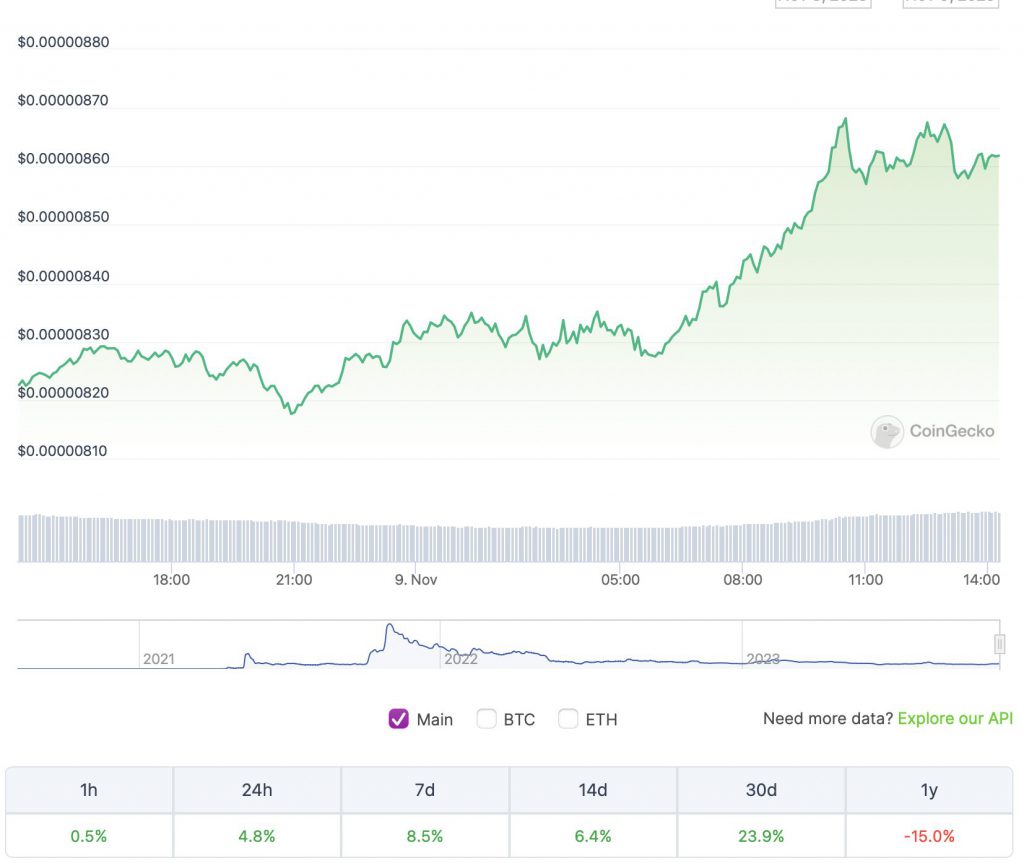Shiba Inu (SHIB) has finally overcome its $0.000008 resistance level, rallying over 23% over the last month and 8.5% in the previous week. However, despite the recent price spike, SHIB is up by only 6.4% since January 2023. Bitcoin (BTC), on the other hand, is up by over 120%, while Solana (SOL) and Chainlink (LINK) are up by over 300% and 160%, respectively. Nonetheless, SHIB fans and investors have not lost hope in the memecoin. Many anticipate the dog-themed crypto to pick up steam very soon.
Also Read: Shiba Inu: SHIB Team Member Reveals Plans for 2024-2025


Can Shiba Inu reach $0.01 by 2030?


For SHIB to reach a price of $0.01, it would have to grow by around 117000%. This level of growth is not something the project has not done. Between its launch in August 2020 and reaching its all-time high in October 2021, Shiba Inu rallied almost 67 million percent. Hence, a rally of 117k percent is not out of the question. However, SHIB’s rally in 2021 had a lot of other driving factors.
Also Read: Shiba Inu: SHIB Futures Surge Amid New Wallet Feature Reveal
Firstly, Ethereum (ETH) co-founder Vitalik Buterin had received half of Shiba Inu’s (SHIB) circulating supply when the project had launched. However, Buterin decided to burn 90% of the tokens he received. The burns led to a significant reduction of SHIB’s supply. The project would need to undertake a similar level of token burns if SHIB is to rally as it did in 2021. The team has said it is working on a new burn mechanism, rumored to destroy trillions of tokens yearly. However, the team has not given any tentative launch date.
Nonetheless, burns alone will not push the token’s price. According to Shiba Inu (SHIB) lead developer Shytoshi Kusama, the project would need a significant spike in adoption. The project recently launched its layer-2 network, Shibarium, which could lead to more applications built on SHIB and, hence, may lead to a rise in adoption.
Therefore, SHIB could reach a price of $0.01 by 2030, but there are conditions to reach this level. Firstly, the project will have to reduce its supply, and secondly, it would need to drive up mass adoption.





